date: 2023-12-30
title: Probability-Theory
status: DONE
author:
- AllenYGY
tags:
- Chi-Square
- Lec5
- ProbabilityStatics
- NOTE
created: 2023-12-30T09:21
updated: 2024-04-08T20:13
publish: TrueProbability-Theory
- The Chi-Square Distribution
- Chi-square goodness of fit tests
拟 合 优 度 检 验 - A chi-square test for independence
独 立 性 检 验
Chi-Square Tests
- Test of Multinomial Experiment
- General Test
- Test for homogeneity
- Test for normal distribution
- Test for independence
The Chi-Square Distribution
The chi-square
- There is a family of chi-square distributions.
- It is skewed to the right.
- It is non-negative.
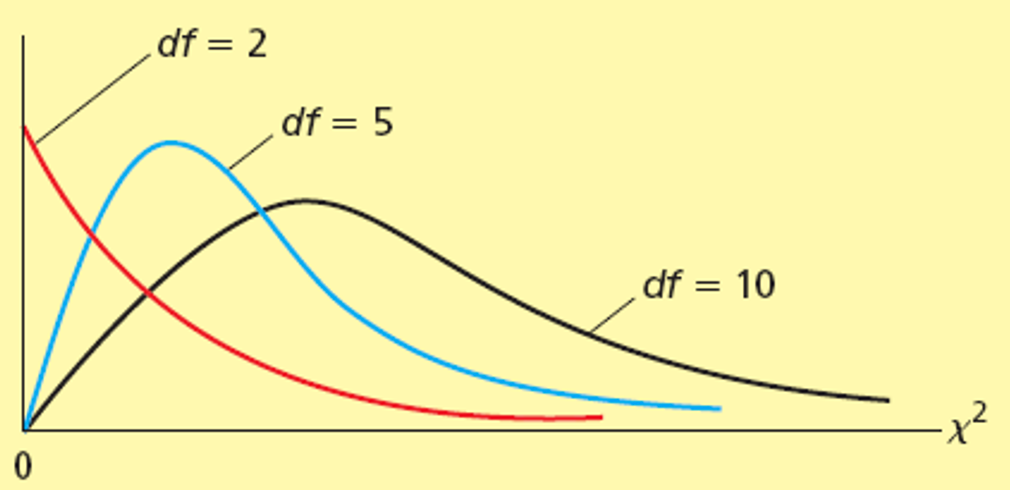
Test of Multinomial Experiment
- H0: multinomial probabilities are p1, p2, … , pk
Ha: at least one of the probabilities differs from p1, p2,…, pk - Choose
- Multinomial Experiment
Assumption: The excepted cell frequencies are >5 - Critical value is
- Test statistic:
- Reject H0 if
General Test Example
Marital status
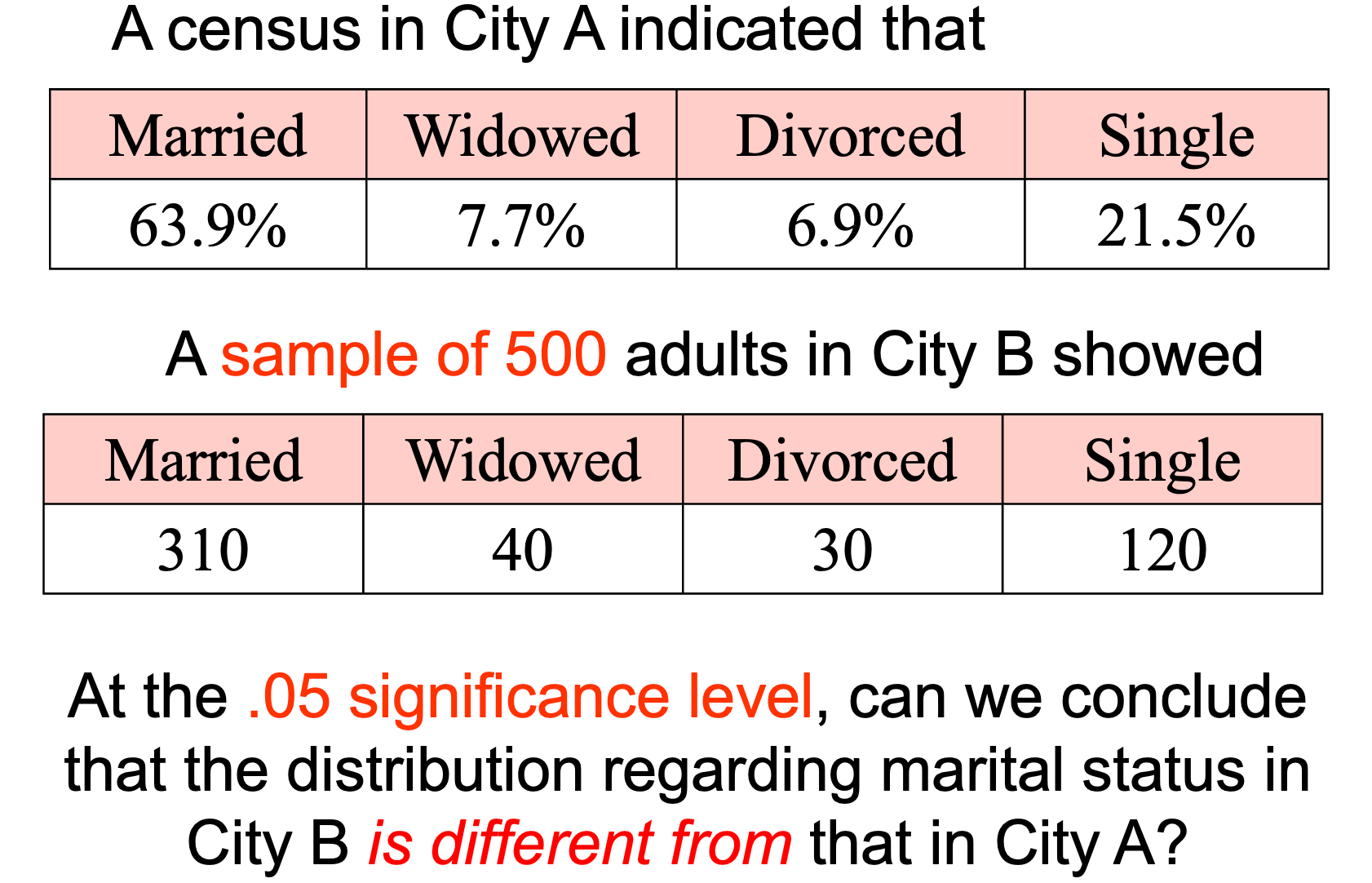
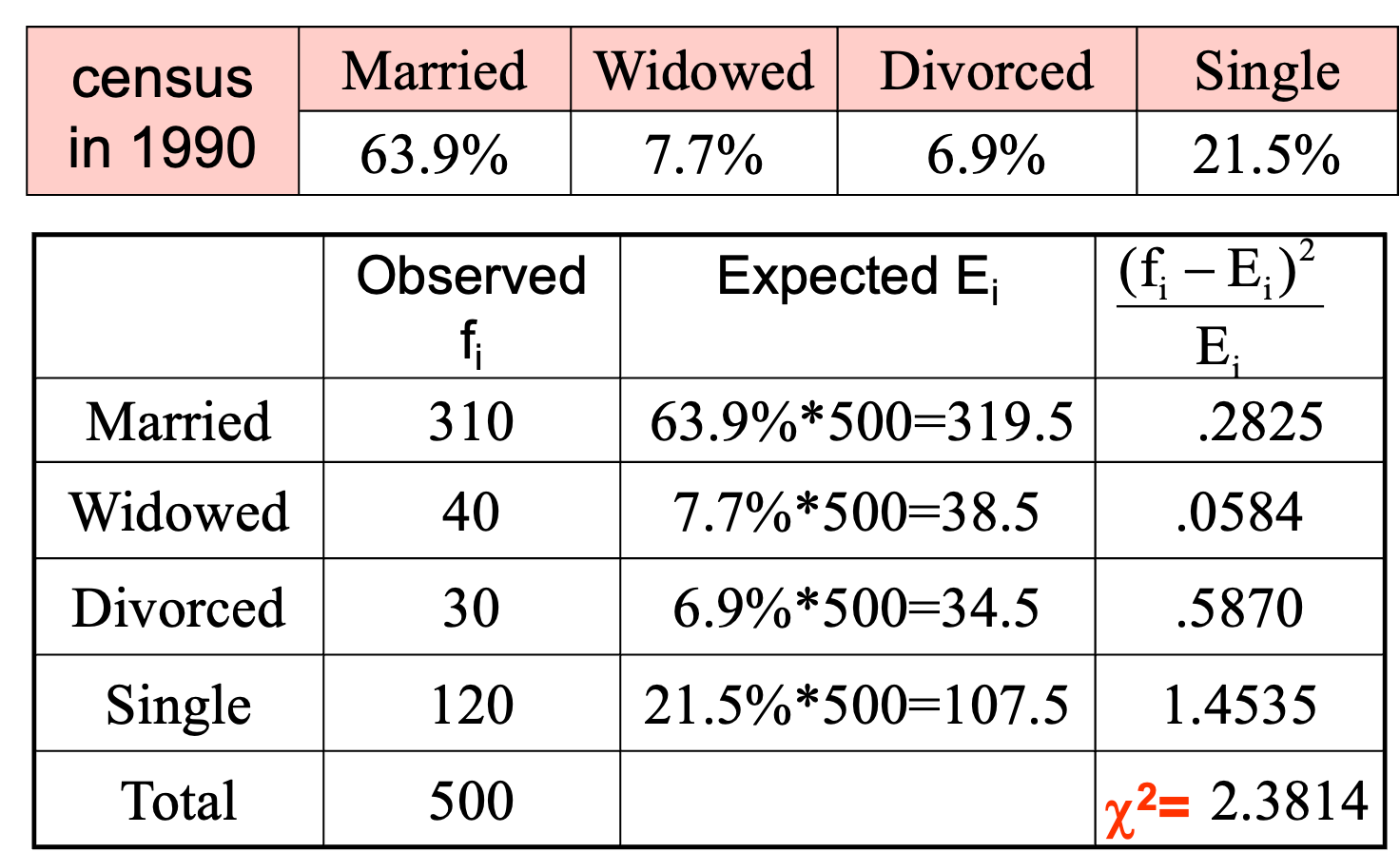
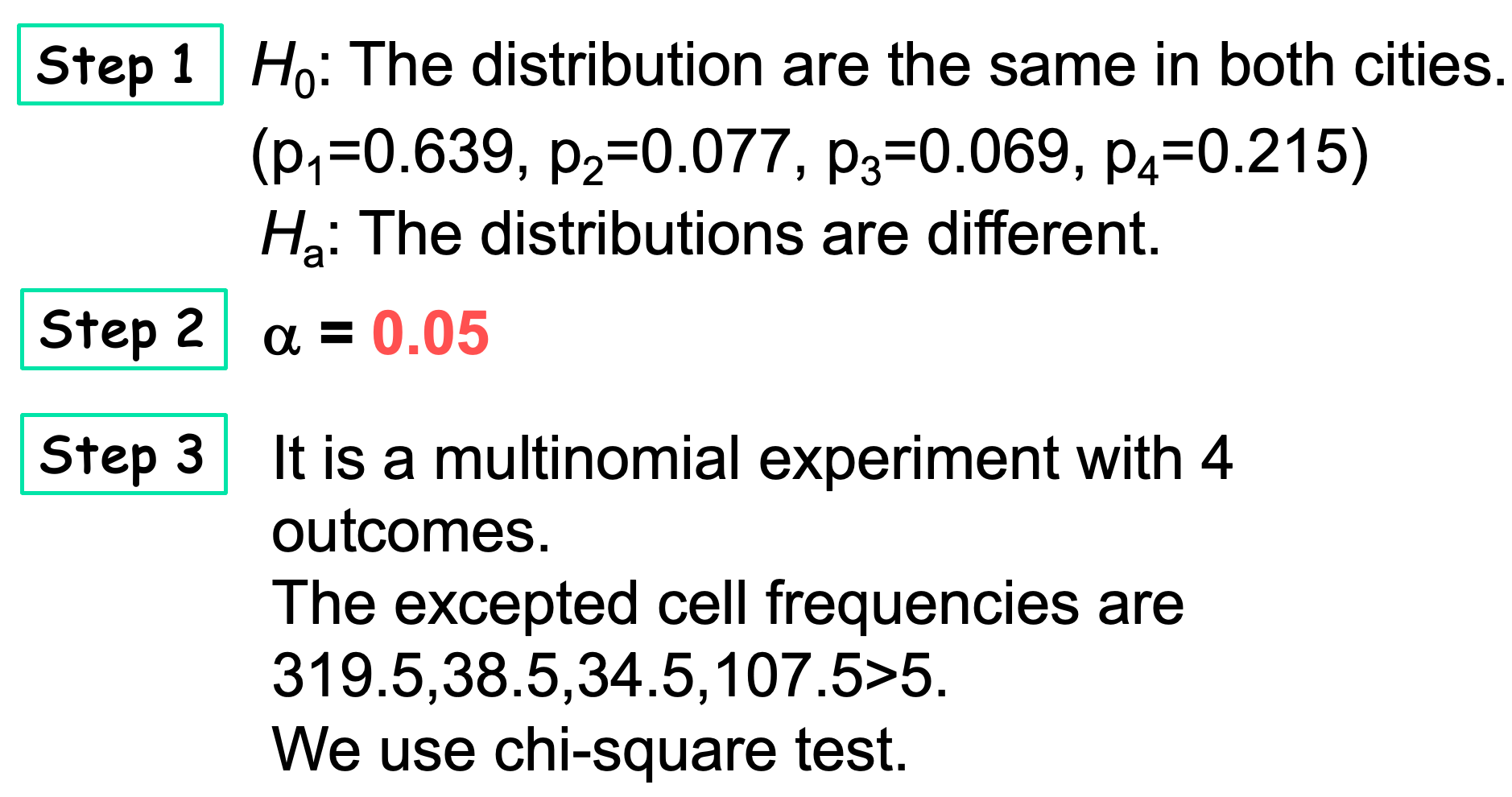
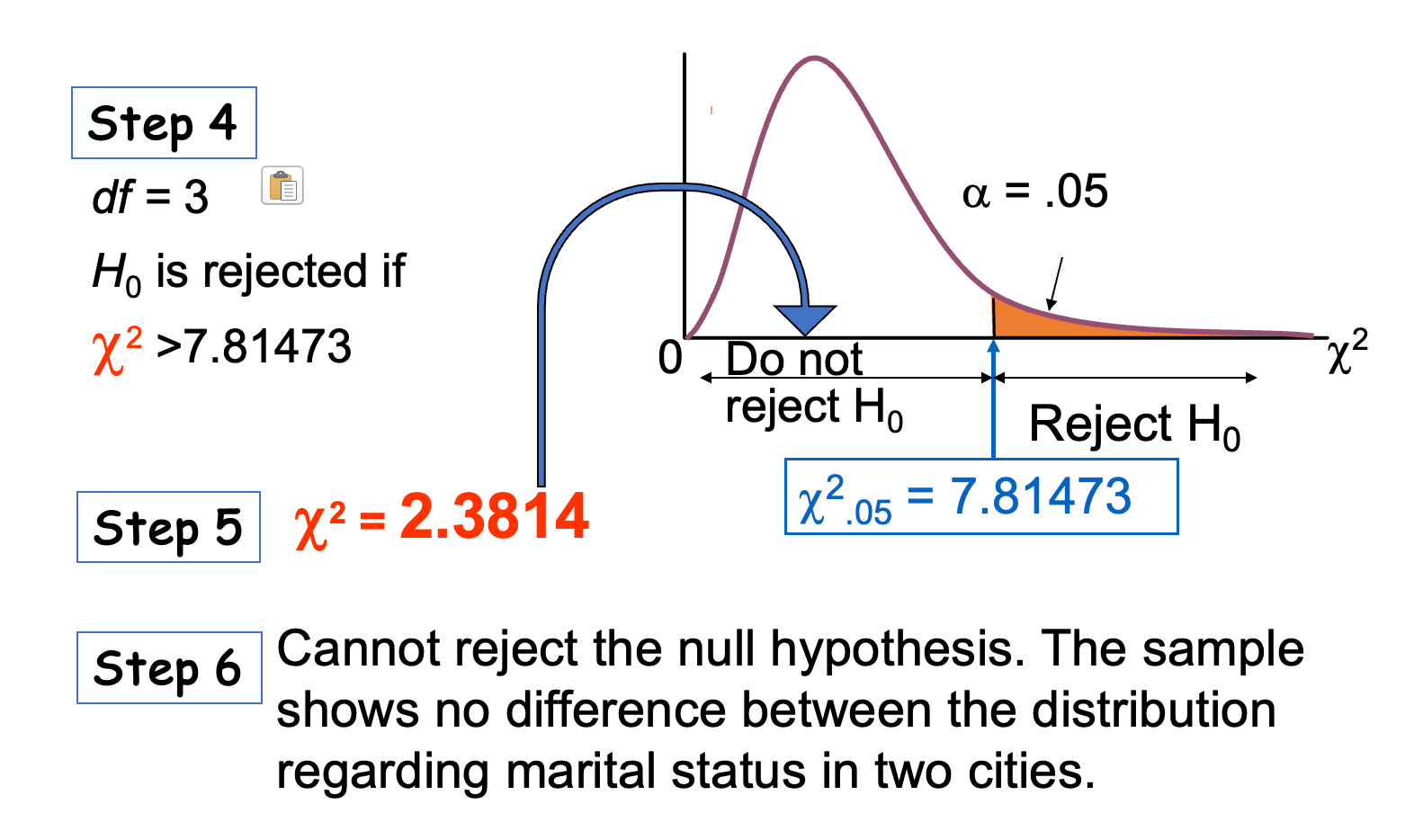
Test for homogeneity Example
Support calls
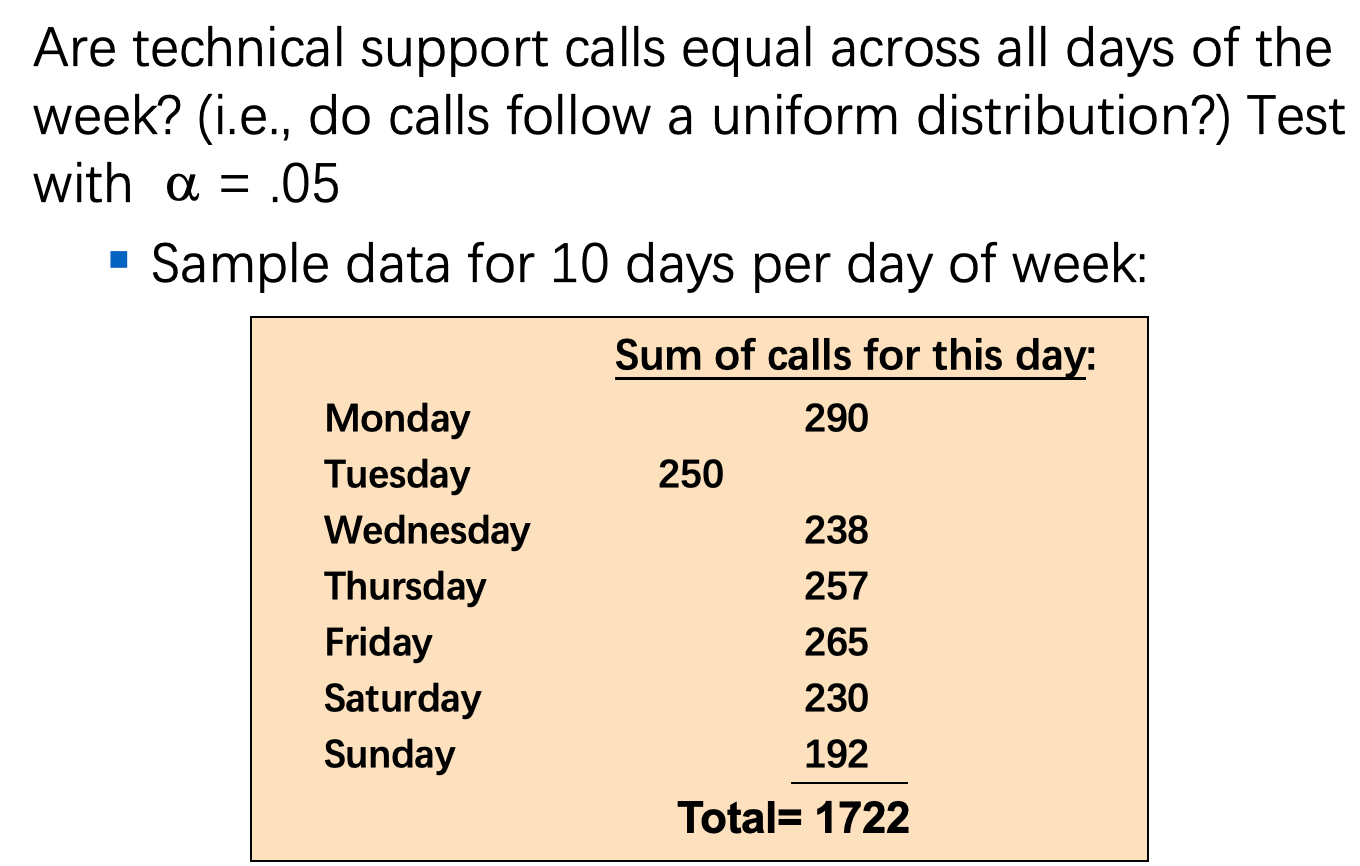
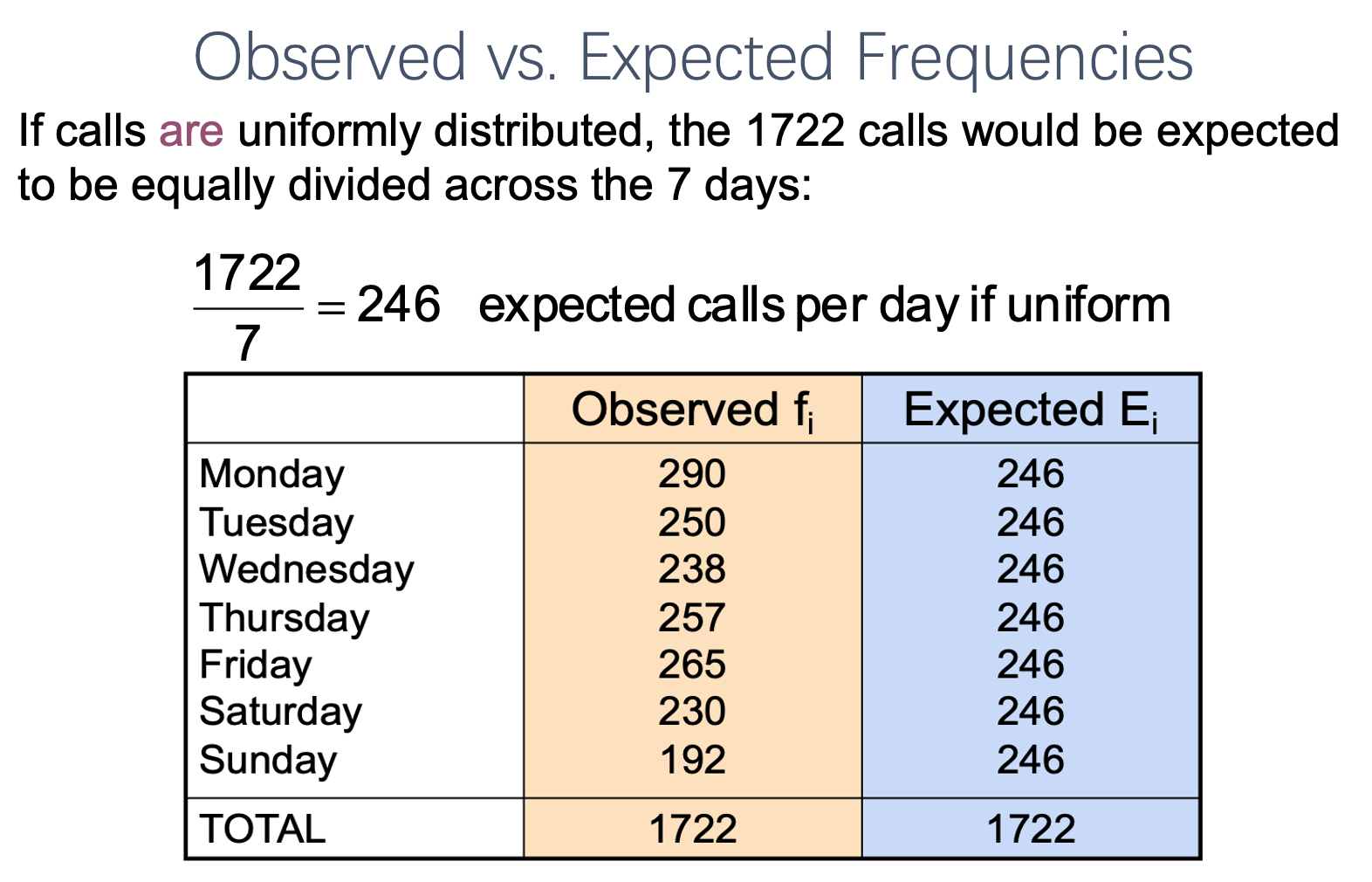
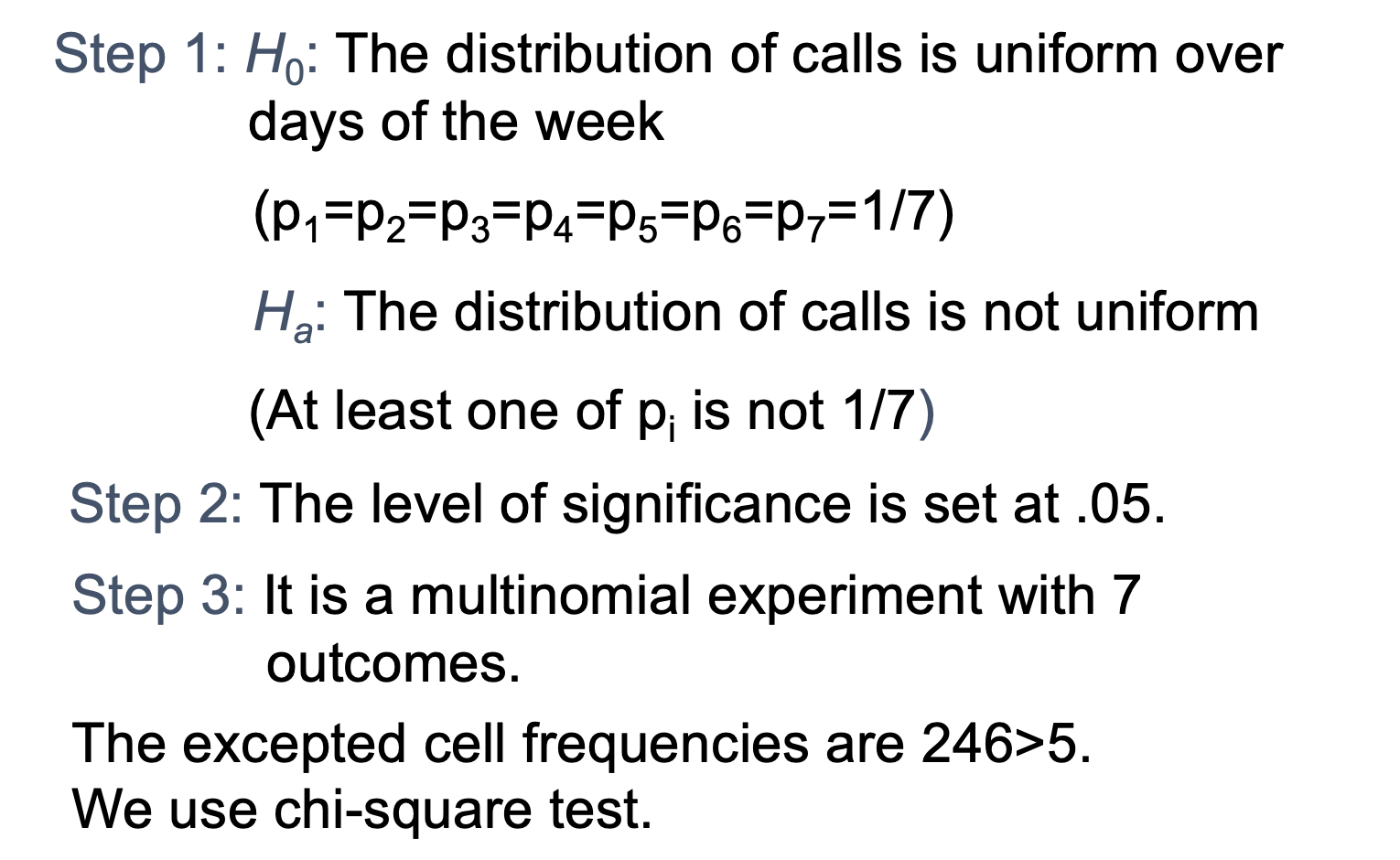

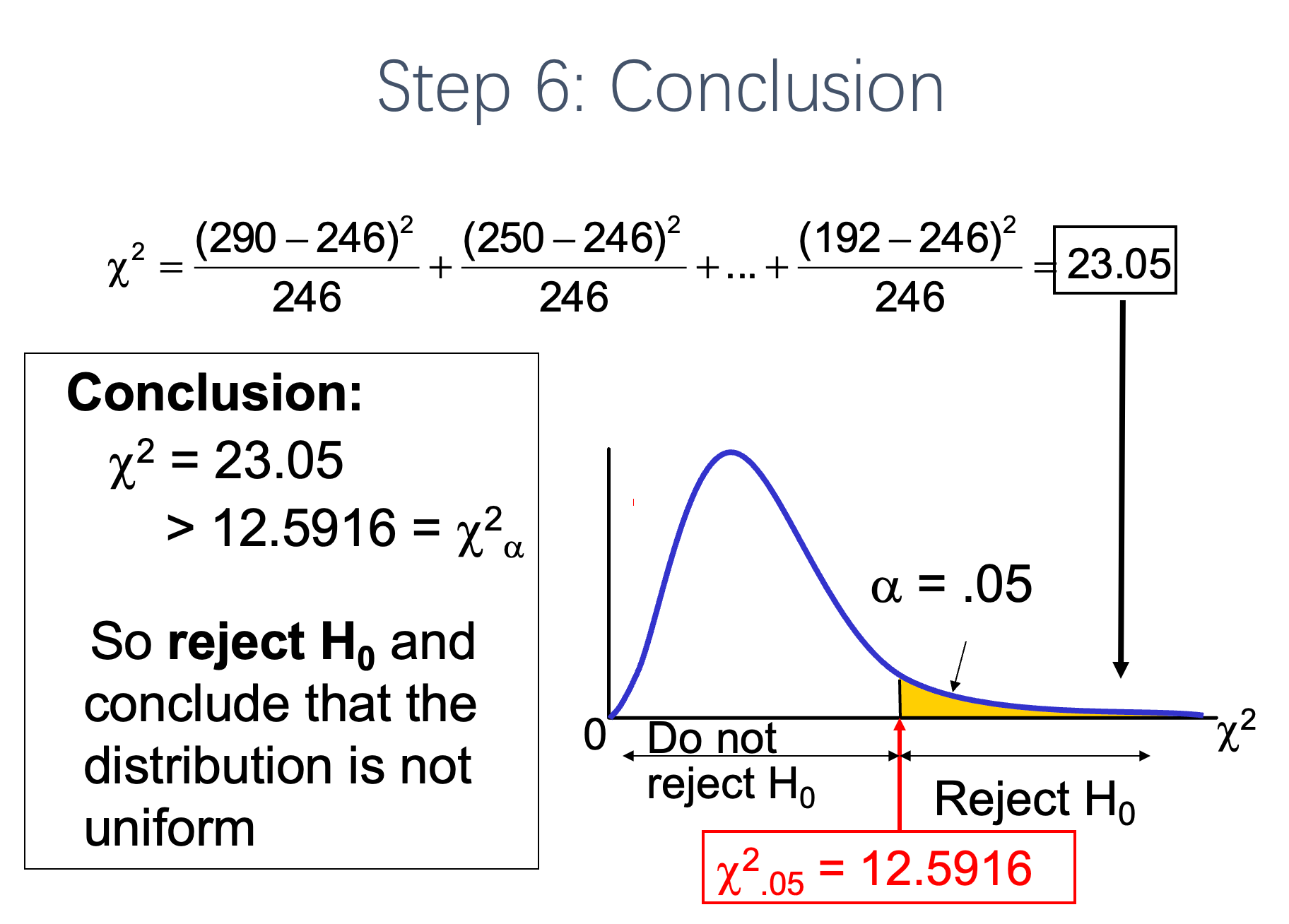
Chi-Square Test for Independence
Chi-square test of independence is used to determine if there is a significant relationship between two qualitative (categorical) variables.
A contingency table is used to investigate whether two traits or characteristics are related.
-
H0: X and Y are independent
Ha: X and Y are dependent -
Assumption: The excepted cell frequencies are > 5
-
Set the level of significance
- Critical value is
- Test statistic:
where:
6. Reject H0 if
Chi-Square Test for Independence Example
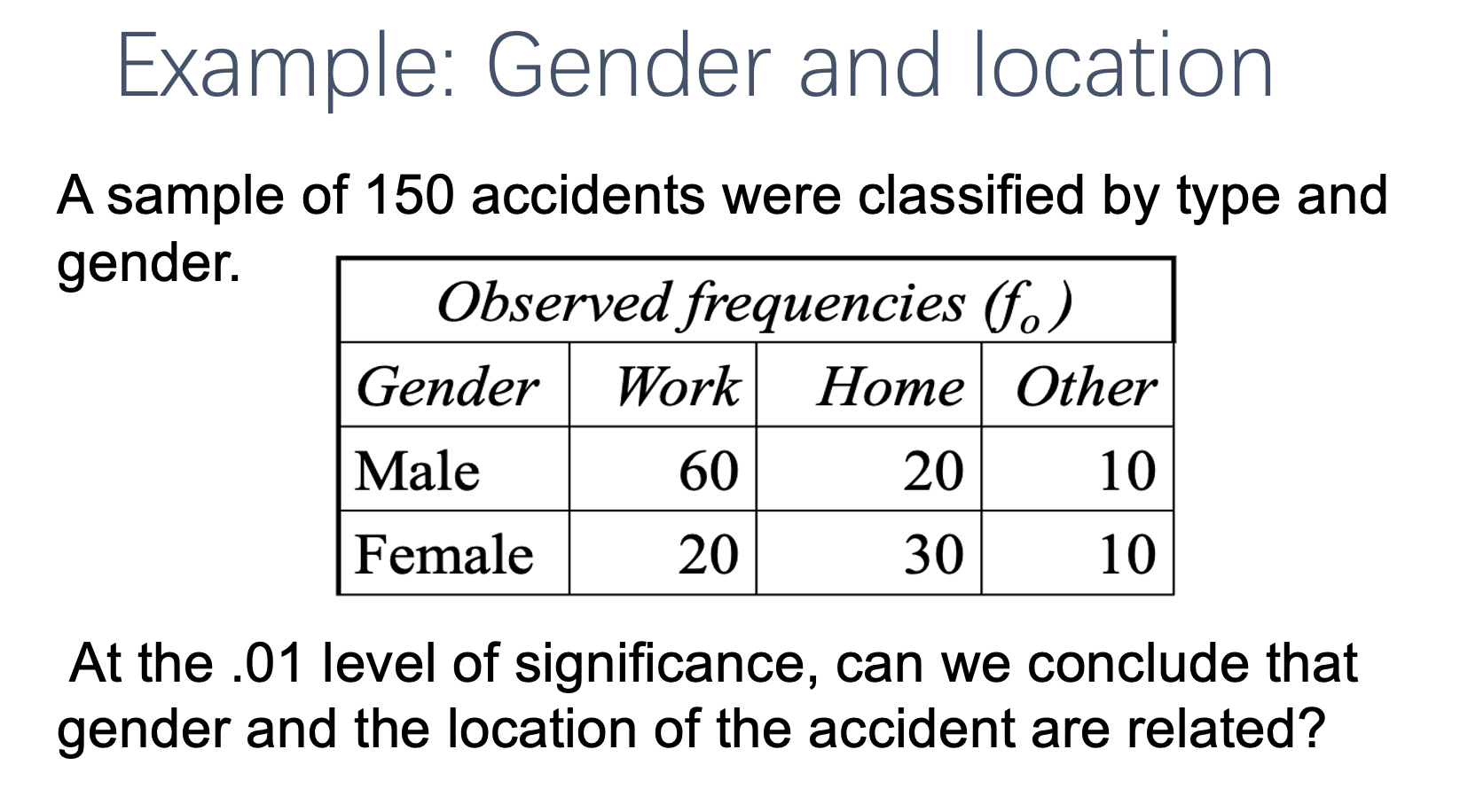
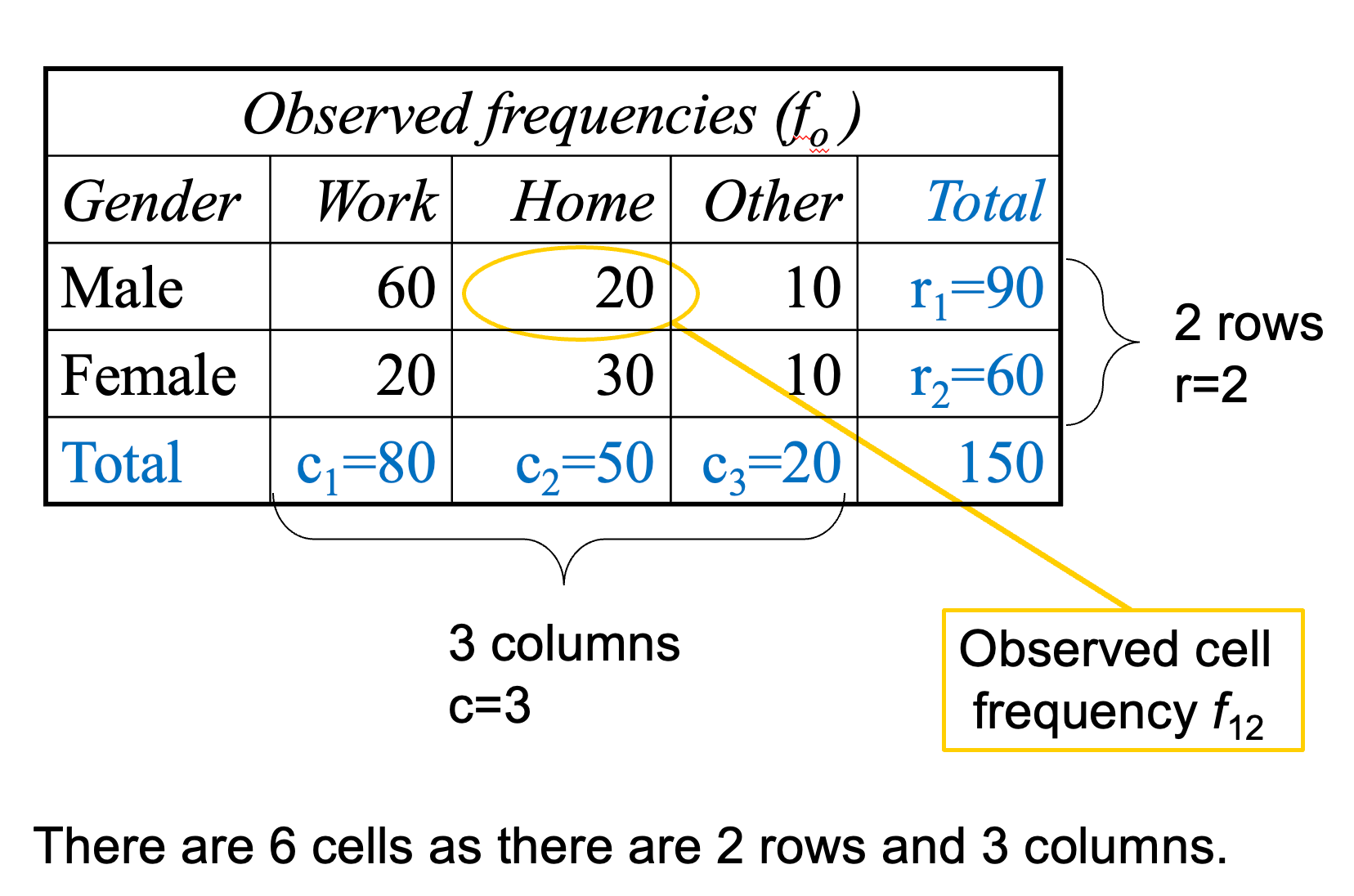
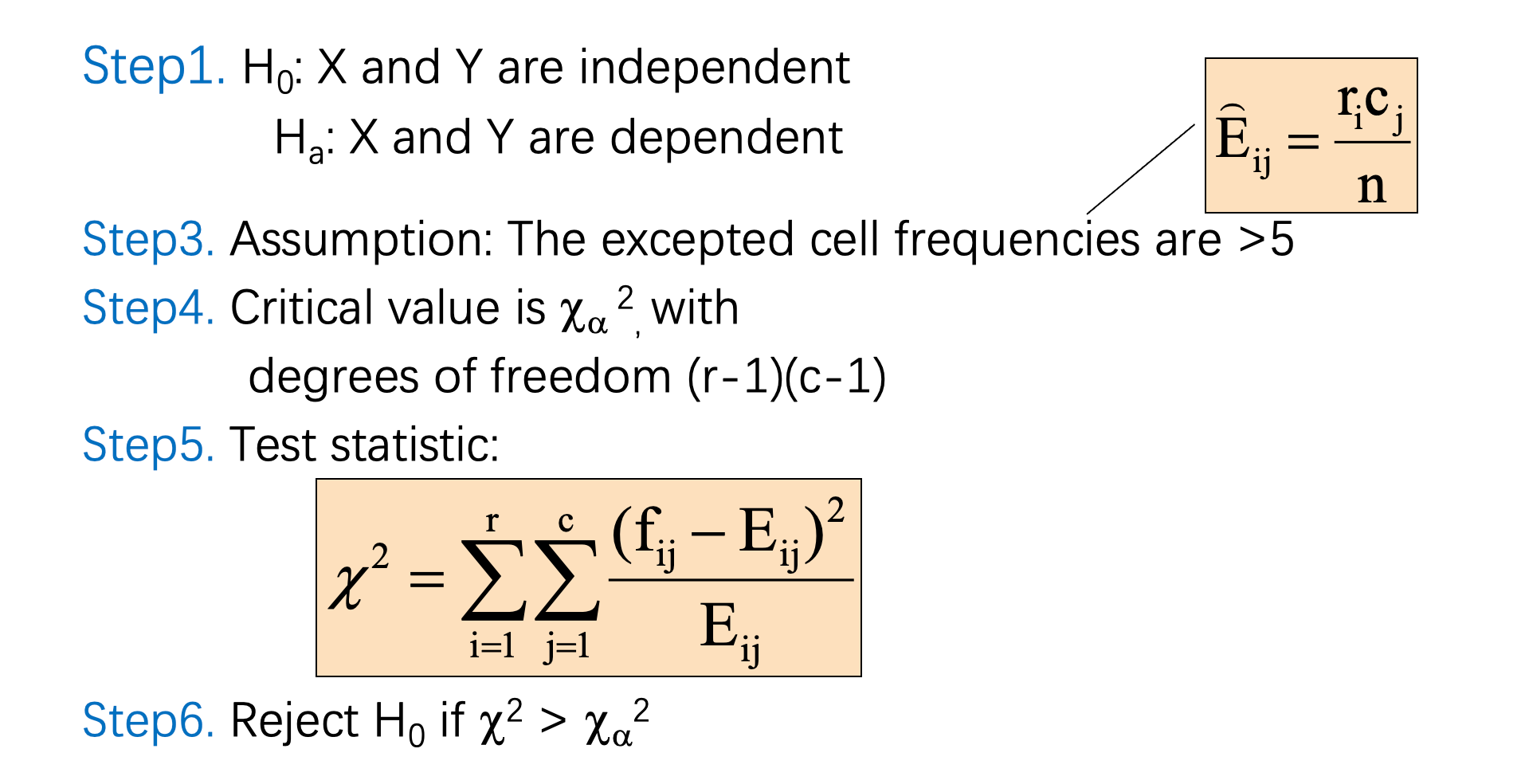
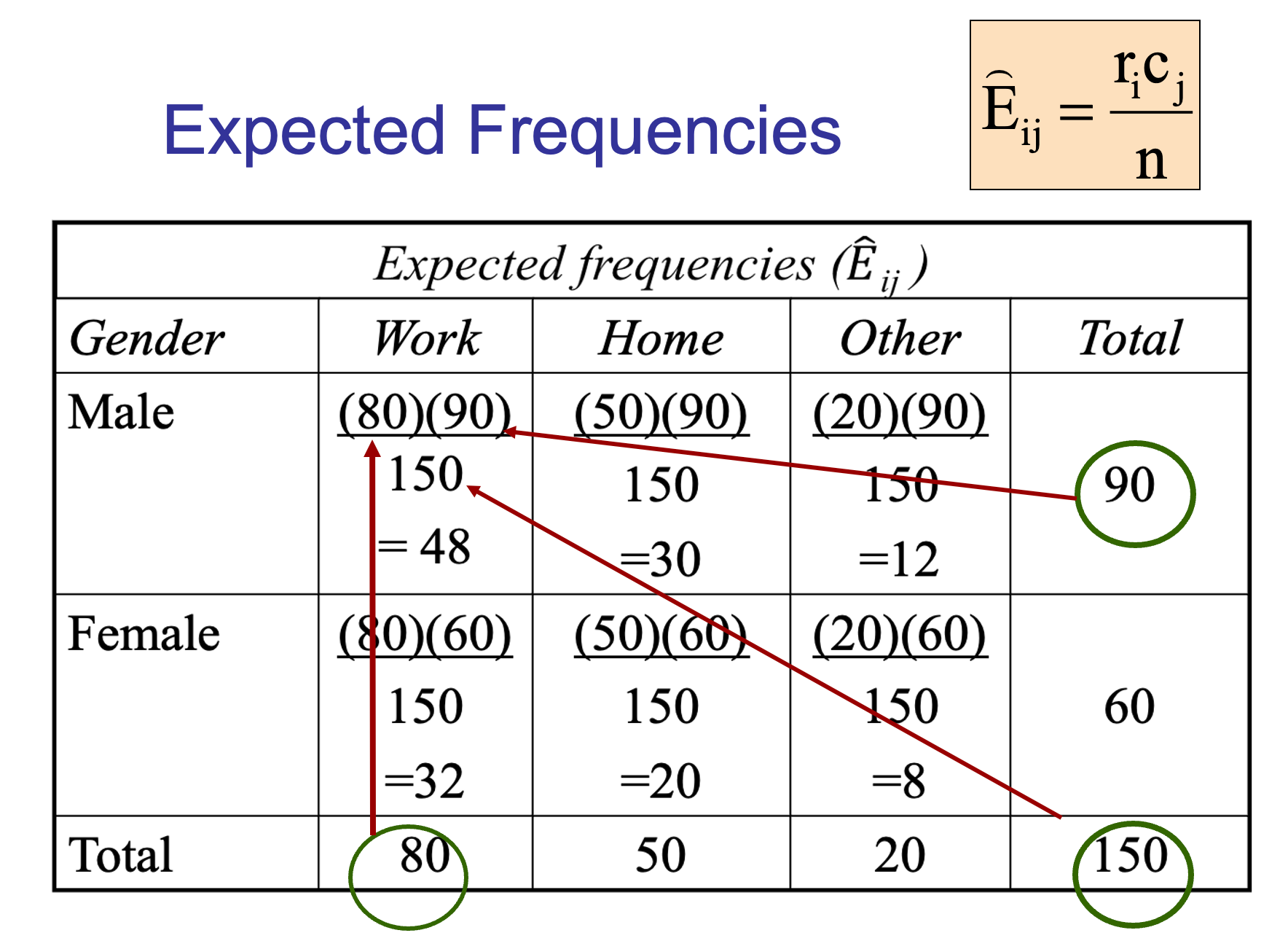
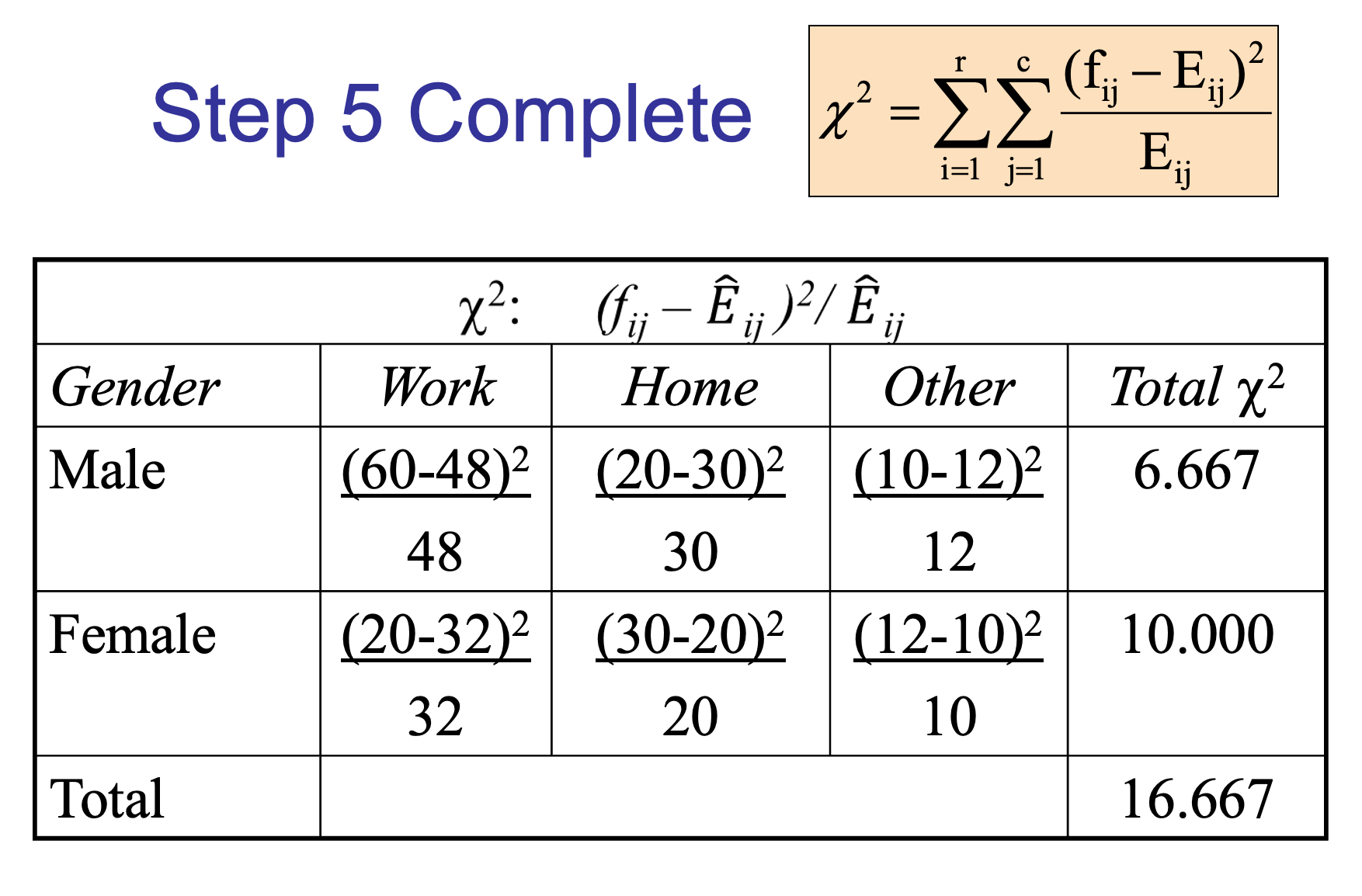
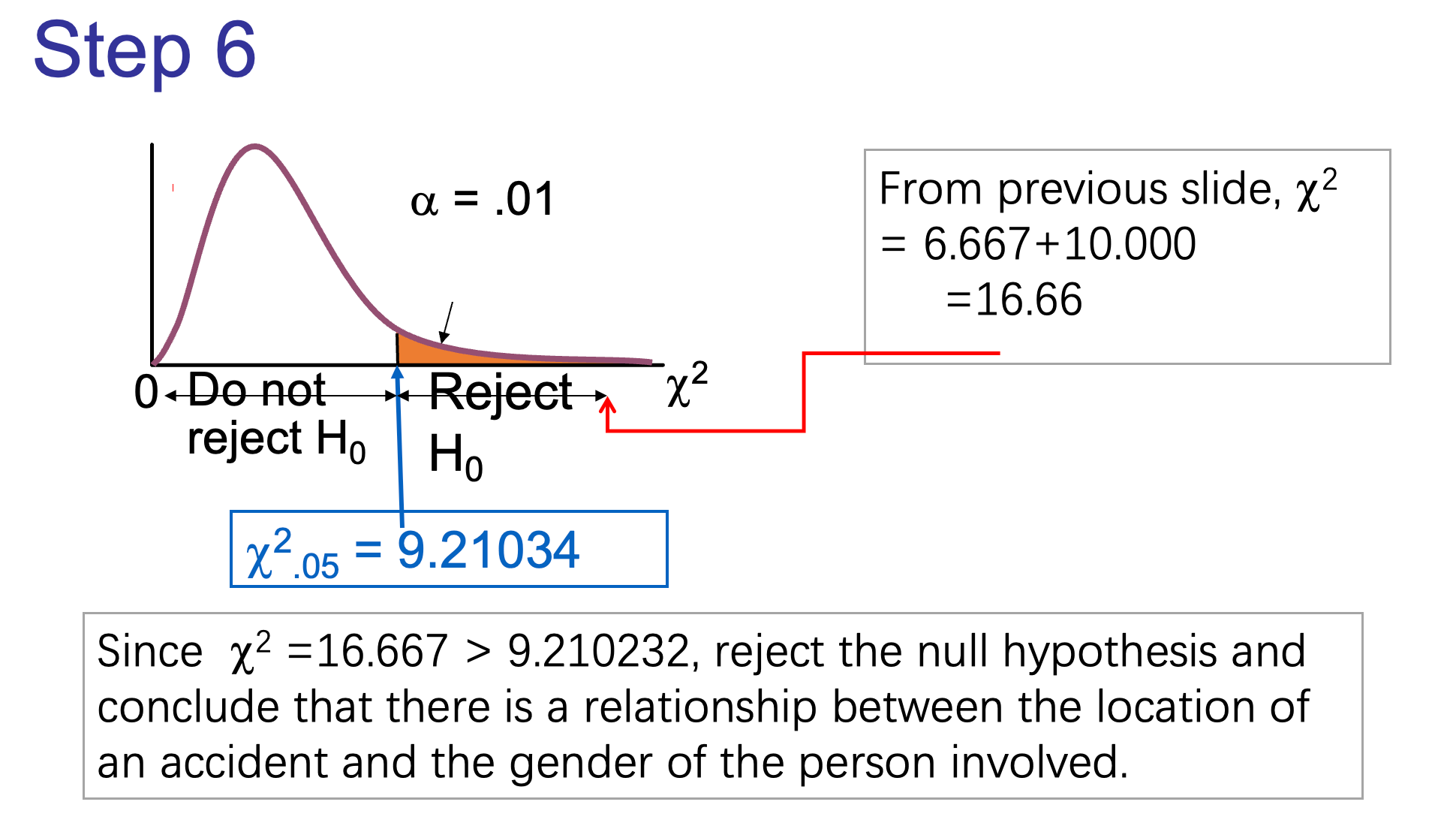
Summary
Chi-squared test of goodness of fit:
d.f. = k - 1
Chi-squared test of independence in a contingency table:
d.f. = (r - 1)(c - 1)
These formulas and degrees of freedom calculations are fundamental to performing chi-squared tests in statistics.